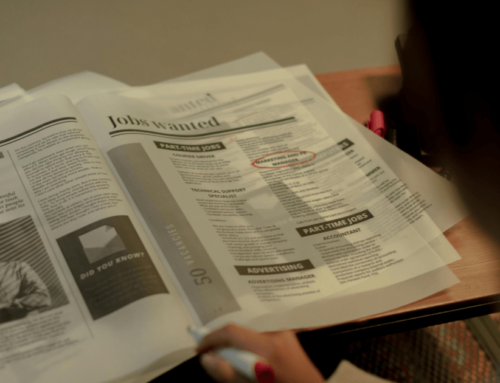How to Adapt Assessment Arrangements to Meet Individual Learner Needs
At Karen Blake Coaching, we believe that every learner deserves an equal opportunity to succeed, no matter their personal circumstances or learning needs. A key part of our approach is adapting assessment arrangements to meet the diverse needs of individual learners. Whether you’re pursuing qualifications in Education and Training, Assessment and Quality Assurance, or Leadership and Management, our inclusive assessment practices ensure fairness and flexibility.
In this blog, we’ll explore how educators and assessors can adapt assessments to support learners with language barriers, disabilities, cultural and religious considerations, and professional commitments.
Adapting Assessments for Learners with Language Barriers
For learners whose first language isn’t English, traditional assessments may be daunting. At Karen Blake Coaching, we offer alternative ways for English as an Additional Language (EAL) learners to demonstrate their knowledge. Options like oral presentations or the use of translation tools can remove language barriers without compromising the quality of assessments.
For example, one of our EAL learners, a Spanish-speaking student in the Level 3 Award in Education and Training, used Google Translate and Grammarly to complete assignments. This approach allowed him to meet the criteria while gradually improving his written English skills.
Supporting EAL Learners:
- Provide oral assessments.
- Encourage the use of translation tools.
- Offer extra time for written assignments.
Cultural and Religious Considerations in Assessments
It’s important to consider cultural and religious factors when planning assessments. Deadlines should be set with awareness of major religious observances, and assessment content should be culturally sensitive.
At Karen Blake Coaching, we collaborate with learners to ensure that deadlines and exam schedules respect their religious practices. We also make sure that assessments avoid content that could be culturally insensitive or offensive to specific religious groups.
Cultural Sensitivity in Assessments:
- Avoid scheduling deadlines during religious festivals.
- Ensure culturally neutral or sensitive content in assessments.
Supporting Learners with Disabilities
Learners with disabilities may need specific adjustments in the assessment process. For instance, we had a learner with limited mobility who couldn’t physically perform group activities. Instead, they took on a supervisory role, allowing them to meet the learning outcomes of the course.
Learners with conditions like dyslexia can also benefit from modifications such as extra time for exams or printed materials on coloured paper, which helps improve focus and clarity.
Adapting Assessments for Disabilities:
- Offer alternative formats for assessment tasks.
- Provide extra time for learners with learning difficulties.
- Make physical adjustments based on learner needs.
Flexible Deadlines for Working Professionals
Many of our learners are working professionals balancing careers, education, and family life. That’s why we offer flexible deadlines to accommodate their schedules. For instance, a group of part-time learners in the Level 4 Certificate in Education and Training preferred weekday deadlines, allowing them to study over the weekend.
By engaging learners in the discussion about deadlines, we help them take ownership of their learning journey while maintaining realistic expectations.
Personalising Deadlines for Professionals:
- Set deadlines that align with learner schedules.
- Involve learners in setting deadlines to create a practical timeline.
Engaging Learners in the Assessment Process
We aim to foster a collaborative learning environment where learners are engaged in the assessment process from the start. By discussing potential challenges and making reasonable adjustments, we ensure that all learners have the opportunity to thrive. Whether it’s providing additional support for a learner with disabilities or adjusting timelines for a busy parent, we are committed to inclusive practices.
At Karen Blake Coaching, our qualifications—whether in Learning and Development, Team Leading, or Assessment and Quality Assurance—emphasise inclusivity. We encourage our learners to think critically about how they can adapt assessments in their own professional roles.
Creating Inclusive Learning Experiences
We take pride in offering flexible, adaptable, and inclusive learning experiences. Every learner is unique, and our approach to assessments reflects that. Whether through adjusting deadlines, offering alternative assessment methods, or providing additional resources, we are here to help each learner reach their full potential.
If you’re ready to take the next step in your education or career, explore the range of qualifications we offer at Karen Blake Coaching, designed to support your personal and professional growth.
Start Your Journey with Flexible Assessments
At Karen Blake Coaching, we are dedicated to supporting your success through flexible and inclusive assessments. Explore our courses here or contact us at [email protected] to discuss how we can tailor our learning solutions to your needs.
References/Bibliography
Gravells, A. (2014). Achieving Your Assessment & Quality Assurance Units (TAQA), 2nd edn. London: Learning Matters SAGE.
Bell Foundation (n.d.) ‘How Do I Assess an EAL Learner?’ Available at: https://www.bell-foundation.org.uk/resources/eal-assessment-framework/how-do-i-assess-an-eal-learner/ (Accessed: 23 October 2024).





